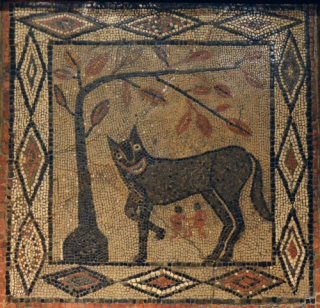Roman history and the dangers of nostalgia
I���m not sure how we should feel about ancient Rome becoming an increasingly popular comparison for modern politics: both a mixture of delight and fear, I guess. . . and with a recognition that these comparisons tend to come in waves, and will retreat again soon.
But that fact is some heavyweights have been laying in more vociferously than in recent years, including Paul Krugman ���who has been comparing some aspects of modern American politics to the fall of the Roman Republic.
One of the main lessons he sees is: ���Republican institutions don���t protect against tyranny when powerful people start defying political norms.��� And he quotes Adrian Goldsworthy on the constraining rules that once governed Roman Republican politics, but no longer did by the time of its ���fall���: ���However important it was for an individual to win fame and add to his and his family���s reputation, this should always be subordinated to the good of the Republic ��� no disappointed Roman politician sought the aid of a foreign power.���
There is obviously something in this, but as with all such comparisons it conceals as much as it reveals.
For a start, even if the picture is broadly true, there is the obvious question of what caused the defiance against the traditional rules of political life? It wasn���t just that politicians started behaving worse, or were a generally more worthless lot. There were all kinds of other factors at play, which may -- or more likely may not -- be relevant. There was imperial expansion and huge issues about its governance, social and economic changes caused in part by the influx of slavery, which was one of the main ���profits��� of empire. (If anyone wants a quick guide to the complexity of all this, the first chapter of Keith Hopkins, Conquerors and Slaves is still one of the best.)
But there is also a question of what kind of historical change we are dealing with. OK, the Republic DID in the end collapse. But the nostalgic view (held by ancients and moderns alike) of the early and middle Roman Republic as a place where politics was done honourably and properly, unlike the later period, doesn���t stand up in its simple form.
Roman writers WANTED to believe that the end of the Republic was a violent overturning of an earlier consensus. That���s what Appian tried to claim when he wrote that the conflict over (and murder of) Tiberius Gracchus in the 130s BC was the first time ���daggers had entered the forum���.
Actually it wasn���t the first time. Roman history had been marked by internal violence from the very start. That���s what the story of Romulus and Remus (pictured in a British version above) is trying to say: fratricide is part and parcel of Rome. And it goes on through the rape of Lucretia, to the Struggle of the Orders (horrible civil strife hiding under a posh name), and beyond. Anyone who had read about the bitter battles of early Rome would have known that there had been class conflicts, sit-down strikes and civic dissent way long before the Republic fell. The peaceable earlier consensus was a myth.
And for us there is a problem of evidence too. The surviving letters of Cicero, with all their gossip and double-dealings, give a very strong picture of the self-interest and cutthroat quality that defines later Republican politics. How different, we think, from those honourable earlier days of the Scipios and their like.
But hang on. The reputation of the Scipios has probably been saved by the fact that we do NOT have their letters, which would presumably have revealed very similar kinds of bad behaviour, wheeling and dealing and back-stabbing.
It���s not that Roman politics didn���t change, but it wasn���t the simple picture of political and moral decline that it gets painted ��� especially when we want to use it as a comparison for our own.
Mary Beard's Blog
- Mary Beard's profile
- 4110 followers




